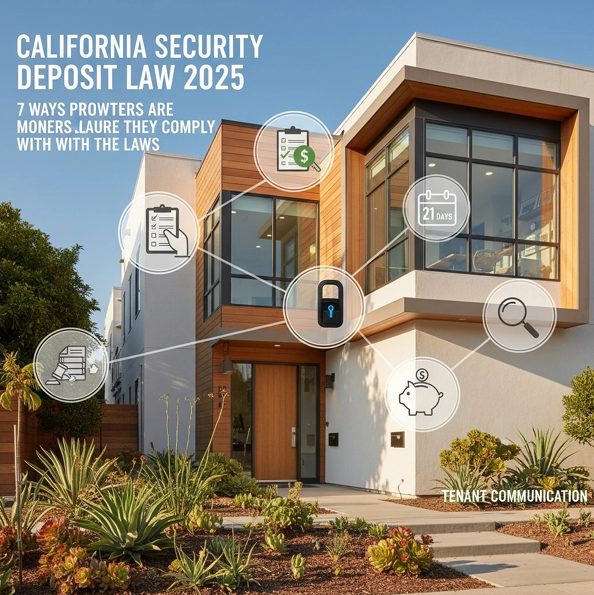5 New Changes to California’s Rental Laws for 2025
California's rental market continues to experience significant changes in 2025, after a substantial batch of new laws in 2024. The assault on landlord’s ability to increase property values continues with several notable laws and efforts for 2025. These legislative changes reflect California's ongoing efforts to balance the rights and responsibilities of landlords and tenants.
Tenant Screening (AB 2493): Effective January 1, 2025, landlords or their agents may charge a potential tenant an application screening fee only if they accept applications in the order received and approve the first applicant meeting the established criteria. The screening criteria must be provided in writing with the application. Any applicant not approved can ask for their application fees to be returned.
Security Deposits (AB 2801): Starting April 1, 2025, landlords must photograph rental units before tenancy begins, after possession is returned (prior to any repairs or cleaning), and after repairs or cleaning are completed. These photographs must be provided to the departing tenant. For tenancies beginning on or after July 1, 2025, initial photographs must be taken at the start of the tenancy. Photos should be time stamped.
Rent Reporting for Market-Rate Housing (AB 2747): As of January 1, 2025, residential rental property owners must offer tenants the option to have their positive rental payment information reported to at least one nationwide consumer reporting agency.
Fees and Notices (SB 611): Effective January 1, 2025, landlords are prohibited from charging tenants fees for paying rent or security deposits by check, or for serving, posting, or delivering any notice.
Balcony Inspections (AB 2579): This law extends the deadline for property owners to perform balcony and exterior elevated element inspections in buildings with three or more multifamily units from January 1, 2025, to January 1, 2026.
And…
Success of Proposition 34 (November 2024 Balot initiative). This proposition, while drafted broadly, specifically targeted the Aids Foundation, which has waged a war on California real estate owners over the past decade, sponsoring near annual voter propositions intended to make the entire state of CA rent controlled. The Prop 34 measure mandates that these types of “care providers” allocate at least 98% of their revenues from federal 340B Drug Pricing Program directly to patient care only (and not to sponsoring rent control ballot initiatives along with multi million dollar ad campaigns). They spent approx. $47 million alone in 2024. Over $100 Million in the past 5 years.
Share this post
Contact Us




